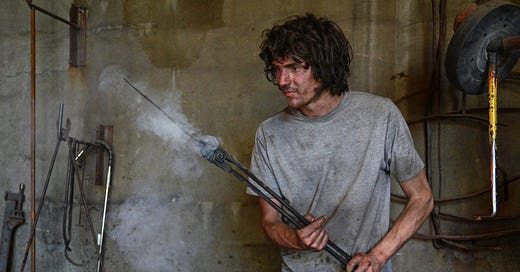Veblen is Wrong: Towards the New Aspiration Economy
Blenheim Forge knives. Circular Sarah Wiener restaurant group. Trunk House. Sandquist. Meditation. Hoodie. Oatly. No-meat diet. Buzz Rickson MA-1. No-alcoholic spirits. Bauhaus. Busyness. Kalsarikänni. Privacy. CBD. New moon in Aquarius. Likes and followers. Non-GMO. Digital detox. Tbilisi fashion week. Greta Thunberg. Kintsugi. Intermittent fasting. Micro-influence.
This is the post-Veblen aspiration economy.
In Veblen’s view, status comes only from display of wealth through consumption. But status today is not expressed in economic terms only. Rather, it’s linked to culture, wellness, ethics, spirituality, social influence, and environmentalism. Greta Thunberg, a teenager whose cause and moral conviction puts the rest of us to shame, enjoys elite status.
Inexpensive goods and activities, like earthing, no-meat diet or meditation, are modern status symbols. When consumers buy non-GMO and ask questions about where something was made and by who, they signal their status through their wokeness. Wealth and economic class are thus replaced by one’s worth and values.
Modern class is anchored not in accumulation and display of possessions or even experiences, but of knowledge. The knowledge of art, design, architecture, fashion, music and of how and where things are made. It’s rooted in the knowledge of obscure locations offering transformative travel experiences. It’s about knowing the nutritional value of everything we eat, and of carbon footprint-value of everything we wear, use, and do. It is also rooted in being in the know: in consumers’ ability to decode subtle brand signals or learn about vintage and streetwear drops. There’s also status in membership in a community, or in the ability to attract and command attention on social media by accumulating likes and followers.
Traditional luxury brands, once reliable signals of class and status, now can be rented and resold. Anyone can walk around in a Gucci outfit. This upends the notion of a Veblen good. A Veblen good is something whose desirability increases with price. But an artisanal knife can today be deemed more desirable than a Louis Vuitton bag, and eating in zero-waste restaurants signals status more than staying in a Four Seasons hotel. Just look at Financial Times’ How to Spend It, also known as “the shopping list for the 1 percent”: it’s full of features on Makers, slow travel, yule logs, and admiration for limited-edition, low-tech displays of human originality and creativity.
Modern status has very little to do with money. Aspiration is decoupled from consumption.
Choose one of the paid subscription options to access the rest of this analysis.
Keep reading with a 7-day free trial
Subscribe to The Sociology of Business to keep reading this post and get 7 days of free access to the full post archives.




